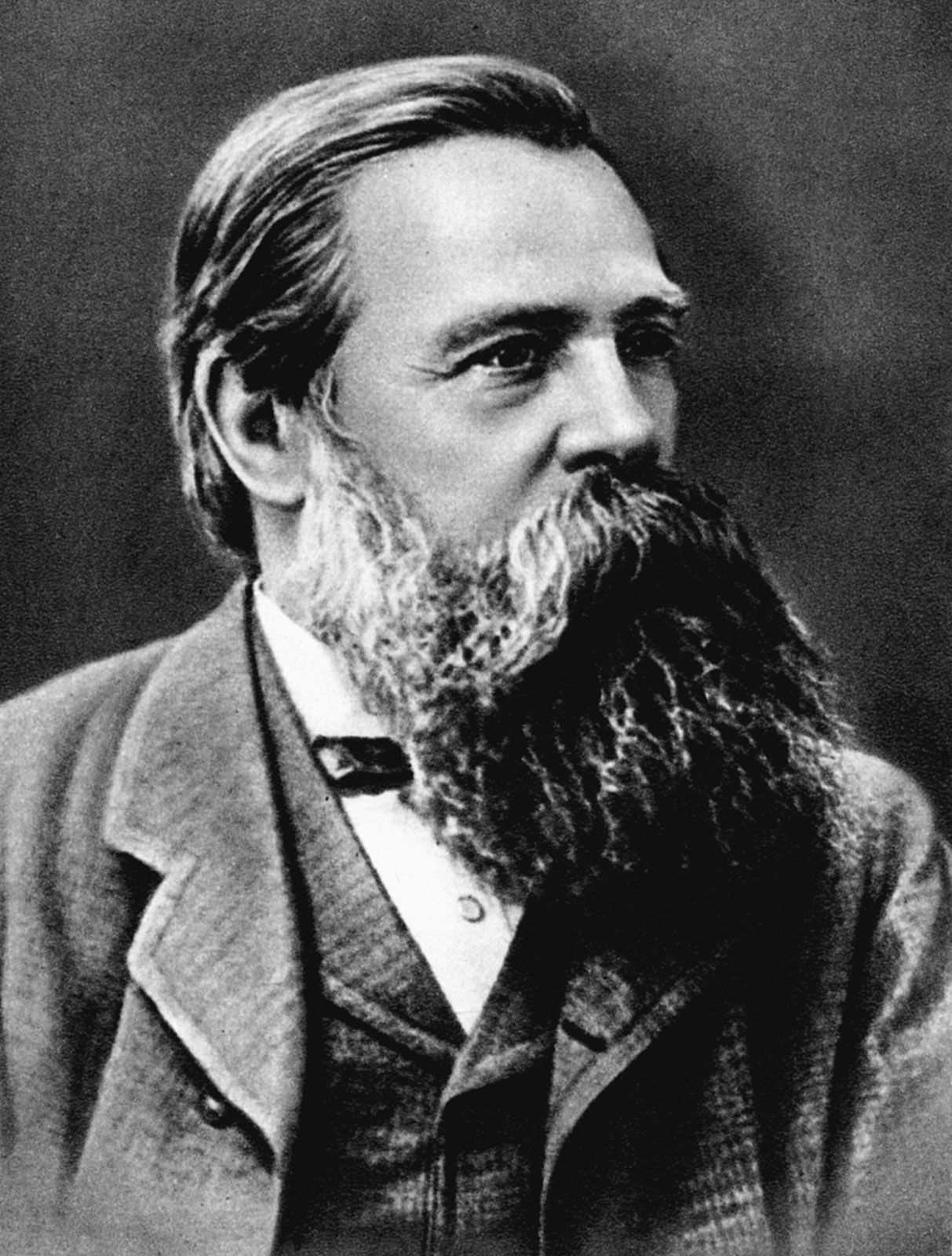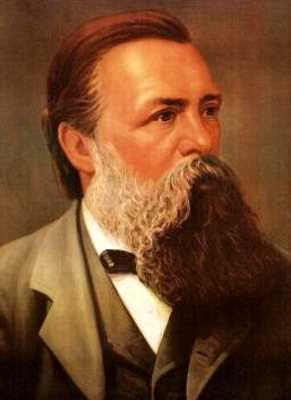Friedrich Engels: A Comprehensive Look at His Life, Contributions, and Lasting Impact
Friedrich Engels was a German philosopher, social scientist, and political theorist who lived from 1820 to 1895. He is best known for his collaboration with Karl Marx and their joint work “The Communist Manifesto” and “Das Kapital”. Engels played a crucial role in shaping the field of macroeconomics and his ideas continue to have a lasting impact on modern society.
Early Life and Education of Friedrich Engels

Engels was born on November 28, 1820, in Barmen, Prussia (now part of Germany). He came from a wealthy industrialist family and received a comprehensive education in various subjects including philosophy, history, and economics. Engels’ exposure to the harsh working conditions of the industrial revolution had a profound impact on his worldview and fueled his passion for social justice.
Contributions of Friedrich Engels to Macroeconomics
Engels made significant contributions to the field of macroeconomics through his collaboration with Karl Marx. Together, they developed the theory of historical materialism, which posits that the development of society is driven by the conflicts between social classes. Engels also expanded on Marx’s ideas by analyzing the role of capitalism in perpetuating inequality and exploitation.
The Lasting Impact of Friedrich Engels’ Ideas

Engels’ work also influenced the development of socialist and communist movements. His collaboration with Karl Marx laid the groundwork for the establishment of Marxist theory and the subsequent formation of socialist and communist parties. Engels’ ideas continue to shape political movements and ideologies that strive for a more equitable and just society.
Legacy of Friedrich Engels in Modern Society

The legacy of Friedrich Engels can be seen in various aspects of modern society. His ideas have influenced the development of social welfare policies and labor rights movements. Engels’ critique of capitalism and his advocacy for workers’ rights have contributed to the establishment of minimum wage laws, workplace safety regulations, and the recognition of trade unions.
Furthermore, Engels’ analysis of the role of women in society and the family has had a lasting impact on feminist theory. His work on the origins of the family and private property highlighted the ways in which gender inequality is intertwined with class exploitation. Engels’ insights continue to inform feminist analyses of patriarchy and the struggle for gender equality.
Early Life and Education of Friedrich Engels
Despite his privileged upbringing, Engels developed a keen sense of social justice and a deep concern for the plight of the working class. This was largely influenced by his experiences witnessing the harsh working conditions in his father’s factories and the poverty and inequality that existed in the industrialized cities of the time.
Engels received a traditional education at home and later attended a grammar school in Barmen. He excelled academically and showed a particular aptitude for languages, mastering English, French, and Italian in addition to his native German.
During his time in Manchester, Engels also became involved in radical political circles and befriended Karl Marx, with whom he would later collaborate on several influential works. Engels’ experiences in England, combined with his intellectual pursuits, laid the foundation for his later contributions to macroeconomics and his lasting impact on socialist thought.
Engels’ early life and education set the stage for his future endeavors as a revolutionary thinker and writer. His firsthand experiences of the inequalities and injustices of the capitalist system, coupled with his intellectual curiosity and linguistic abilities, shaped his perspective and provided him with the tools to critique and challenge the prevailing economic and social order of his time.
Contributions of Friedrich Engels to Macroeconomics
Marxist Economics
Engels is best known for his collaboration with Karl Marx in developing the theory of Marxism. Together, they analyzed the capitalist mode of production and its inherent contradictions. Engels expanded on Marx’s ideas and provided a comprehensive analysis of the capitalist economy.
The Labor Theory of Value
Engels also contributed to the development of the labor theory of value, which states that the value of a commodity is determined by the amount of socially necessary labor time required to produce it. He argued that under capitalism, the value created by the working class through their labor is appropriated by the bourgeoisie, leading to exploitation.
Engels further developed the concept of surplus value, which refers to the difference between the value created by the workers and the wages they receive. He highlighted the role of surplus value in capitalist accumulation and the concentration of wealth in the hands of the bourgeoisie.
The Role of the State
In addition to his contributions to Marxist economics, Engels also analyzed the role of the state in capitalist societies. He argued that the state serves as a tool of the ruling class to maintain their power and protect their interests. Engels viewed the state as a means of enforcing the dominance of the bourgeoisie over the working class.
The Lasting Impact of Friedrich Engels’ Ideas
One of Engels’ key contributions was his collaboration with Karl Marx in developing the theory of Marxism. Together, they analyzed the capitalist mode of production and its inherent contradictions. Engels argued that capitalism is based on the exploitation of the working class by the bourgeoisie, and that this exploitation leads to class struggle and social inequality.
Furthermore, Engels’ analysis of capitalism has contributed to the development of alternative economic systems and political ideologies. His ideas have inspired socialist and communist movements around the world, advocating for the abolition of private property and the establishment of a classless society.
In addition to his contributions to economic theory, Engels also played a crucial role in documenting the conditions of the working class during the Industrial Revolution. His book, “The Condition of the Working Class in England,” exposed the harsh realities faced by workers and shed light on the need for social and economic reform.
Engels’ work continues to be studied and debated by scholars and activists today. His ideas have influenced generations of thinkers and continue to shape discussions on economic inequality, social justice, and the role of the state in economic affairs.
Legacy of Friedrich Engels in Modern Society
1. Influence on Socialist Movements
Engels’ emphasis on the importance of collective action and the need for workers to unite against exploitation continues to inspire socialist and labor movements today. His ideas have been instrumental in shaping the ideologies of political parties and organizations advocating for workers’ rights and social justice.
2. Critique of Capitalism
Engels’ analysis of capitalism remains relevant in modern society, as his critique of the exploitative nature of the capitalist system continues to resonate with those who seek economic justice. He highlighted the inherent contradictions and inequalities of capitalism, arguing that it inevitably leads to the concentration of wealth and power in the hands of a few.
3. Feminism and Gender Equality
Engels’ work also had a significant impact on feminist theory and the fight for gender equality. In his book “The Origin of the Family, Private Property and the State,” Engels analyzed the historical development of the patriarchal family structure and argued that it was a product of class society.
His analysis of the economic and social factors that contribute to the subjugation of women laid the groundwork for feminist theories that emerged in the 20th century. Engels’ ideas continue to inform discussions about gender inequality, the intersectionality of oppression, and the need for a more egalitarian society.

Emily Bibb simplifies finance through bestselling books and articles, bridging complex concepts for everyday understanding. Engaging audiences via social media, she shares insights for financial success. Active in seminars and philanthropy, Bibb aims to create a more financially informed society, driven by her passion for empowering others.
